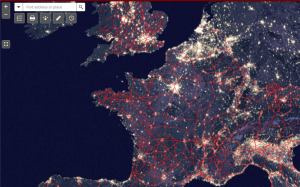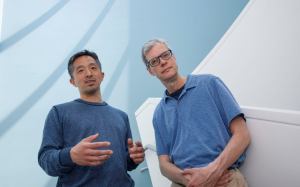Most Americans who skipped H1N1 vaccines weren’t concerned about the illness
Also many questioned safety of vaccine
A comprehensive review of 20 national opinion polls, including 8 by Harvard School of Public Health (HSPH) researchers, taken during the 2009 H1N1 pandemic finds two key
reasons for the limited uptake of the H1N1 influenza vaccine. First, many people who did not get the vaccine were not convinced that the illness was a serious threat to them personally. And second, many had safety concerns about the vaccine.
In one January poll, 30% of people who would not or might not get the vaccine said a “major reason” was their belief that they were not at risk of serious illness and 37% said the H1N1 outbreak was not as serious as public health officials once thought. And in one poll, 56% of parents who were not going to or might not get the vaccine said a “major reason” for their decision was their concern about “safety risks from the vaccine,” compared to 35% of adults making the same decision for themselves about the H1N1 vaccine.
The analysis, by HSPH’s Gillian K. SteelFisher, Research Scientist, and Robert J. Blendon, Professor of Health Policy and Political Analysis, appears as an Online First Perspective in this week’s New England Journal of Medicine.
“These findings suggest that in the event of a future influenza pandemic, a substantial proportion of the public may not take a newly developed vaccine,” said SteelFisher. “Public health officials who want to encourage vaccination must better understand and address the beliefs and concerns of those who chose not to get the H1N1 vaccine.”
Polls during the 2009 H1N1 pandemic also suggest that public health communication efforts related to other personal influenza prevention behaviors, like hand-washing and staying clear of people with flu-like illness, were effective in reaching a large swath of the public. Even early in the outbreak, a large majority of people (59%-67%) said they had washed their hands more frequently due to H1N1, according to polls in April, May and June 2009.
“Building on these self-protection measures, as well as a vaccine strategy, may be useful for future response planning and throughout an outbreak,” said Blendon.
The review encompassed 20 national polls by a range of media outlets and polling organizations, and included 8 conducted by the Harvard Opinion Research Program (HORP) at the Harvard School of Public Health.
Polls conducted by HORP were funded through cooperative agreements with the Centers for Disease Control and Prevention, the National Preparedness Leadership Initiative, the National Public Health Information Coalition, and the Harvard School of Public Health. These awards enable HORP to provide technical assistance to the Centers for Disease Control and Prevention (CDC) as well as to other national and state government health officials in order to support two critical goals: (1) to better understand the general public’s response to public health emergencies, including biological threats and natural disasters; and (2) to improve related public health communications.




